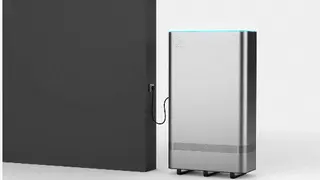The Indian renewable energy industry seems to have kicked off the new year on a positive note, with the announcement of an ₹850-crore investment by IFC, the PE arm of the World Bank, in Hero Future Energies, a company floated by the promoters of the Hero group.
IFC pumped in $125 million for an undisclosed equity stake, making the investment a statement of investor confidence in the Indian clean energy sector at a time when the industry — at least the ‘wind’ sub-segment — is facing a number of challenges. A chat last month with Sunil Jain, CEO and Executive Director of Hero Future Energies and a renewable energy veteran, provided some answers. Excerpts:
Now that you are armed with $125 million, what are the milestones you have set?
The first milestone is to achieve a portfolio of 1 GW of wind and solar capacity which we are hopeful of achieving by June 30. Today, we have more than 1 GW of projects under construction. The next milestone will be 1.5 GW by March 2018, and the next 2.5 GW by 2020.
Is this funding enough to take you through 2020?
This funding will take us through to 2 GW. Two years down the line we will see how we are placed and see about fresh capital... whether equity or bonds is a question we will answer later.
There was talk that you are looking at a bonds issue (possibly raised by IFC with back-to-back agreement with Hero Future Energies).
Yes. Bonds can be raised either for projects or for replacing old, high-cost debt. We now have equity in place (the $125 million) so our rating improves. Pricing (of bonds) becomes materially different between a rating of (say) A and AA. We will raise bonds if we get a pricing advantage of 75-100 basis points over our existing debt. (HFE has a debt stock of ₹3,000 crore.)
In fact, we closed a green bond issue recently. (The company raised ₹300 crore on December 22.) We are getting very fine pricing because of the ‘Hero’ brand value.
Can you disclose the rates…?
It was a shade below 10 per cent. There is definitely scope for further coming down.
You have been in investment mode for some years. Are you profitable?
Yes, we have been making profits. Hero group’s renewable energy business is profitable.
The wind industry is facing a number of challenges, such as deviation settlement, overdue payments and various levies. Are you seeing things improve?
The settlement issue will improve with experience. (The issue relates to wind companies having to meet the supply commitments in accordance with the forecasts, or face penalties.) The Central Electricity Regulatory Commission regulations are good, but States should follow the regulations and not bring in their own regulations.
But the bigger issue is, when I am deviating (from the supply commitment) I have to pay the penalty immediately, but the payments due to me (for the electricity supplied) do not come for six months. It is not fair.
How does the Ministry of New and Renewable Energy look at this?
The Ministry is of the view that things will improve with the UDAY scheme (a scheme that helps State government-owned electricity distribution companies get over current financial ill-health). I believe that from 2018 things will be better, because the reforms arising out of the UDAY scheme will start yielding results. Rajasthan has turned around, in Maharashtra too the payment issues are being resolved.
There are problems like, for example, transmission charges being levied on the basis of installed capacity rather than energy transmitted?
Yes, that puts the renewable energy companies at a huge disadvantage. Transmission charges based on capacity was brought in for thermal power companies. We end up paying 4-5 times that charge (as much as thermal power companies, on per kWhr basis). That makes it unviable for me to do inter-State sales.
The governments should not force us to be dependent only on them for signing PPAs. If I am willing to sell power to others, they should facilitate it.
What would you say about the cross-subsidy charges?
Yes, if you see the Electricity Act, it says that cross-subsidy charges should be gradually brought down, but they have only been going up. And now, there is this new-found love of the State governments for ‘additional surcharge’. A few States have brought it and others will follow.
With all these problems, what gives you the confidence to raise funding and go ahead with projects?
There are problems in every business, we have to tackle them.
A major development last year was the abolition of the ‘RMLL committee’ system of giving approvals for new wind turbines. As a buyer of turbines, does that make you happy?
I am happy about that... there is no transparency in the industry. It (abolition of the system) will open up the Indian market for many turbine manufactures who were reluctant to come in because of the non-tariff-barrier kind of situation. For bringing down the costs of turbines and cost of energy, this is an important step. As more manufacturers come in, prices will fall.
If turbine prices fall and tariffs fall consequently, it will be good for competitive bidding in the industry?
Yes. It is the beginning of the end for fixed feed-in tariffs. They may last a year or a year-and-half more.
Some foreign turbine manufacturers are saying that there are some used machines in excellent condition available for sale. Along with the abolition of RLMM committee system and the ushering in of competition, would you also advocate allowing of imports of used wind turbines?
I think the decision should be left to the investors. Yes, the government should be mindful of the residual life of the machines because here you are signing a PPA for 25 years and if machines that are (say) ten years old...
Those are issues of fine-tuning of policy. But in-principle, should import of used machines be allowed?
Yes, it should be left to the investor. If an investor is interested in importing a machine and generating better returns for himself, why should anybody have an objection? If something happens, it is the investor who stands to lose. Yes, the banks and debt providers will have to weigh this carefully, but again, it should be left to the banks. It should be a free market.
In India, used CNC machines are imported by the dozen. The government does not interfere.
Is WIPPA (a body of wind power generating companies) taking up this issue with the government?
No, WIPPA has not taken up this issue. In fact, this issue has not come up at all.








Comments
Comments have to be in English, and in full sentences. They cannot be abusive or personal. Please abide by our community guidelines for posting your comments.
We have migrated to a new commenting platform. If you are already a registered user of TheHindu Businessline and logged in, you may continue to engage with our articles. If you do not have an account please register and login to post comments. Users can access their older comments by logging into their accounts on Vuukle.